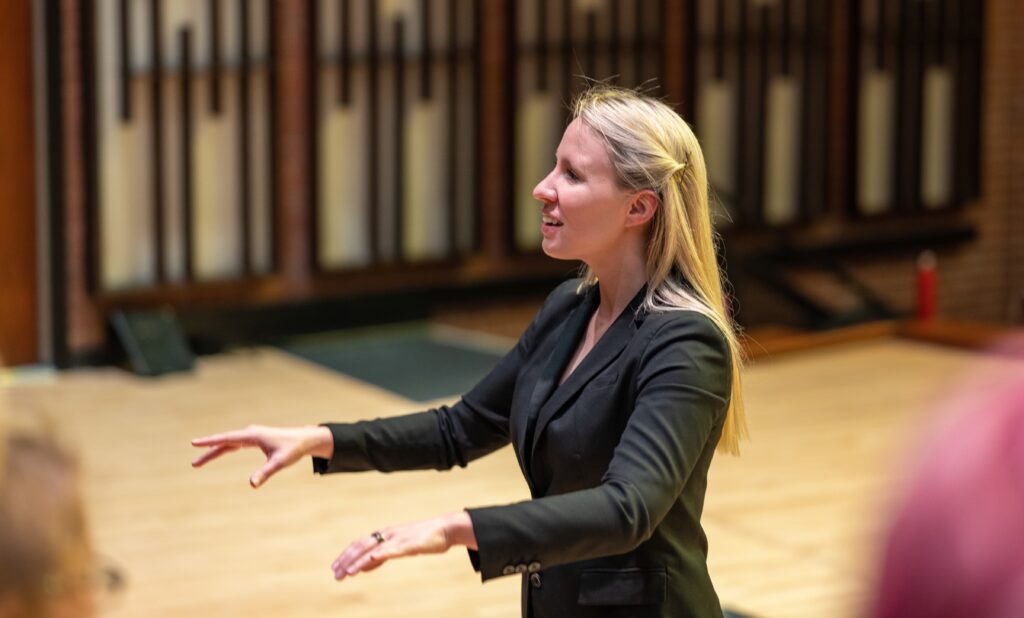UW-River Falls
Assistant Professor
Music and Stage and Screen Arts
 Dr. Cera Babb is the Director of Choral Activities and Assistant Professor of Music at the University of Wisconsin-River Falls, where she conducts the Chamber Singers, Concert Choir, Tenor/Bass Ensemble, and Treble Choir, and teaches courses in conducting and music education. An active clinician with honor choirs, all state choirs, and choral festivals around the country, Babb’s work focuses on fostering enriching, meaningful, and musically excellent experiences with musicians and their communities.
Dr. Cera Babb is the Director of Choral Activities and Assistant Professor of Music at the University of Wisconsin-River Falls, where she conducts the Chamber Singers, Concert Choir, Tenor/Bass Ensemble, and Treble Choir, and teaches courses in conducting and music education. An active clinician with honor choirs, all state choirs, and choral festivals around the country, Babb’s work focuses on fostering enriching, meaningful, and musically excellent experiences with musicians and their communities.
Before teaching at UW-River Falls, Babb taught choir and courses in music education and music history at Alma College. She has also worked with nonprofit, community, children’s, and intergenerational choirs around the country, and values the impact communal music-making can have on communities of all kinds.
Babb’s research interests include assessing the impact of choral music on communities, investigating the work of underrepresented musicians, developing choirs with the use of tuning forks, and fostering student success at the post-secondary level. She holds a Doctor Musical Arts from Michigan State University, a Master of Music in Choral Conducting from the University of Oregon, and a Bachelor of Music in Music Education from the University of Delaware.
TEACHING AND LEARNING PHILOSOPHY
An effective education can foster the critical thinking this requires by going beyond emulation and memorization into the realms of synthesis, creation, and practice. While delivering content is an important step in education, it cannot be the last or only step. Instead, content should serve as a catalyst for more scholarship. As an educator, it is my responsibility to provide space, skills, and time for students to reflect on content and make connections that can help them grow in understanding.
I accomplish this by creating practical experiences. I develop my courses to be student-centered by ensuring opportunities to strengthen new skills. Whether it be peer teaching in music education, forming self-assigned essay topics connecting class material to diverse interests, or taking the podium themselves, students in my classes learn, then try. By immediately implementing new skills, students are empowered to grow as leaders before they enter the field.
The field of music must be ever-changing to keep up with an evolving world, and the classroom should emulate this dynamic reality. The biggest accomplishment in a music classroom is not simply success with a task at hand, but the corresponding readiness to address concepts, issues, and perspectives that have not even been considered yet. With a focus on innovation and communication, my goal is to provide students with tools to prepare them successfully grow with this field and thrive throughout their entire careers.
